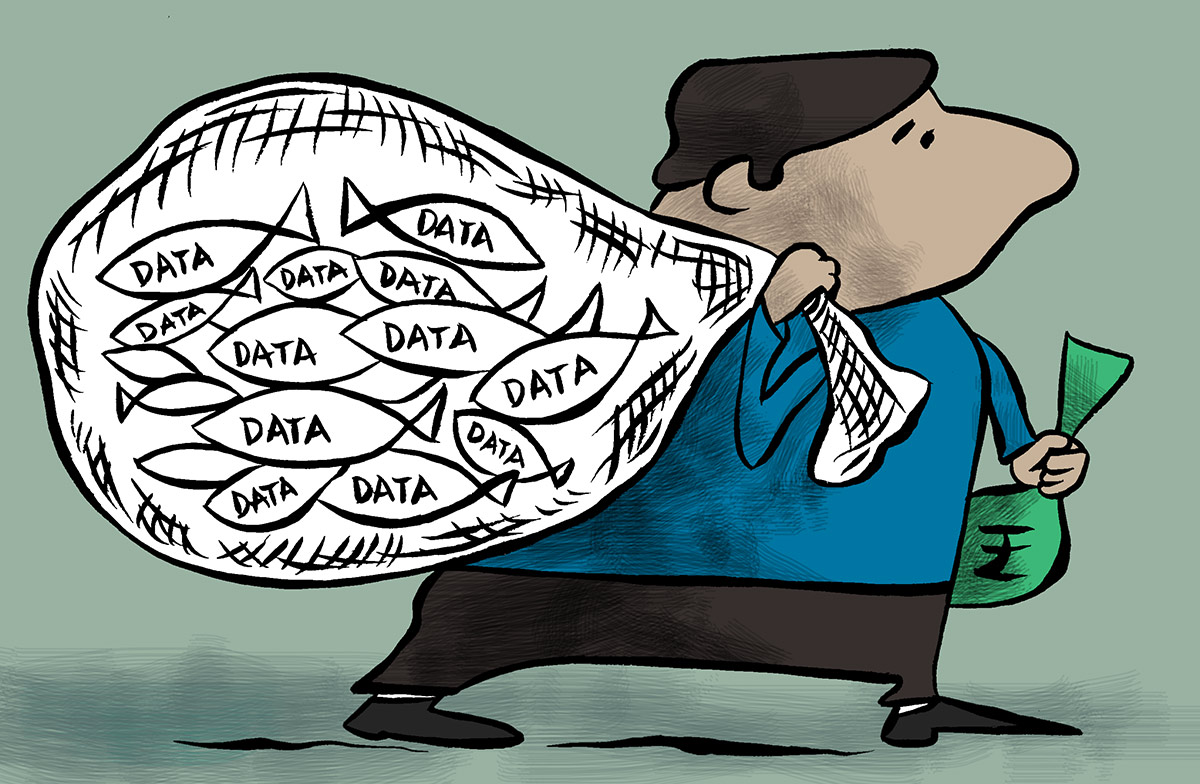Digital India Act Delay: Next Election Unlikely - MoS IT
India's Digital India Act, replacing the IT Act 2000, may not be in place before the next general election due to extensive consultation needed. The Minister of State for Electronics and IT, Rajeev Chandrasekhar, confirmed the delay.

Photograph: Uttam Ghosh/Rediff.com
New Delhi, Dec 6 (PTI) The government may not be able to put in place the Digital India Act, which aims to replace over 23 years old IT Act 2000, before the next general election, as there is not much time left for extensive consultation, Minister of State for Electronics and IT Rajeev Chandrasekhar said on Wednesday.
While speaking at the Global Technology Summit 2023, the minister, however, said the rules for the Digital Personal Data Protection Act will be out later this month for consultation and are expected to be notified by the end of December or early January.
Chandrasekhar said the existing IT Act doesn't even have the word internet, and there is a consensus that it can be safely superseded and replaced.
"The successor act to that is something called the Digital India Act, which is a work in progress. We have the draft ready and a lot of work has gone into it.
"I suspect that before the next elections, we will not be able to legislate it because one of the things that the Prime Minister insists on is that we need every digital legislation to be extensively consulted. Therefore, I don't think we have enough time to get that done," Chandrasekhar said.
The proposed Digital India Act (DIA) has a lot of focus on the online segment.
It will focus on making the internet open with rules to check on the dominance of certain players, focus on online safety and user harm with provisions like age-gating by regulating addictive technology, discretionary moderation of fake news by social media, and define and regulate emerging technologies, among others.
The DIA also proposed stringent regulation for privacy-invasive devices, such as spy camera glasses and wearable tech, by adding know-your-customer rules for retail sales backed by appropriate criminal law sanctions.
Talking about emerging technologies, Chandrasekhar said India's approach towards AI is around emphasising its role in transforming lives and enhancing good governance.
"I want to make it clear that India's position is not to overtly demonise AI by solely viewing it through the prism of safety and trust. We consider AI to be the biggest and most significant invention of our times," Chandrasekhar said.
He said AI will play a significant role in shaping healthcare, agriculture, education, skilling, security, and promoting inclusion through language translation over the next decade.
"Recognising the constraint in our capacity, especially in training large, multi-parameter models, we are actively working on a comprehensive strategy to build the necessary capabilities. This includes developing real GPU capacity in both the public and private sectors," Chandrasekhar said.
He said there is likely to be a significant announcement next month around building computing infrastructure in the country for AI.
While speaking at the Global Technology Summit 2023, the minister, however, said the rules for the Digital Personal Data Protection Act will be out later this month for consultation and are expected to be notified by the end of December or early January.
Chandrasekhar said the existing IT Act doesn't even have the word internet, and there is a consensus that it can be safely superseded and replaced.
"The successor act to that is something called the Digital India Act, which is a work in progress. We have the draft ready and a lot of work has gone into it.
"I suspect that before the next elections, we will not be able to legislate it because one of the things that the Prime Minister insists on is that we need every digital legislation to be extensively consulted. Therefore, I don't think we have enough time to get that done," Chandrasekhar said.
The proposed Digital India Act (DIA) has a lot of focus on the online segment.
It will focus on making the internet open with rules to check on the dominance of certain players, focus on online safety and user harm with provisions like age-gating by regulating addictive technology, discretionary moderation of fake news by social media, and define and regulate emerging technologies, among others.
The DIA also proposed stringent regulation for privacy-invasive devices, such as spy camera glasses and wearable tech, by adding know-your-customer rules for retail sales backed by appropriate criminal law sanctions.
Talking about emerging technologies, Chandrasekhar said India's approach towards AI is around emphasising its role in transforming lives and enhancing good governance.
"I want to make it clear that India's position is not to overtly demonise AI by solely viewing it through the prism of safety and trust. We consider AI to be the biggest and most significant invention of our times," Chandrasekhar said.
He said AI will play a significant role in shaping healthcare, agriculture, education, skilling, security, and promoting inclusion through language translation over the next decade.
"Recognising the constraint in our capacity, especially in training large, multi-parameter models, we are actively working on a comprehensive strategy to build the necessary capabilities. This includes developing real GPU capacity in both the public and private sectors," Chandrasekhar said.
He said there is likely to be a significant announcement next month around building computing infrastructure in the country for AI.
You May Like To Read
TODAY'S MOST TRADED COMPANIES
- Company Name
- Price
- Volume
- Vodafone-Idea-L
- 11.36 ( -2.49)
- 94664837
- AvanceTechnologies
- 1.16 (+ 4.50)
- 34522155
- Sunshine-Capital
- 0.26 ( -3.70)
- 29015901
- Alstone-Textiles
- 0.27 ( -3.57)
- 28695959
- Mehai-Technology
- 1.65 ( -4.62)
- 28262795






